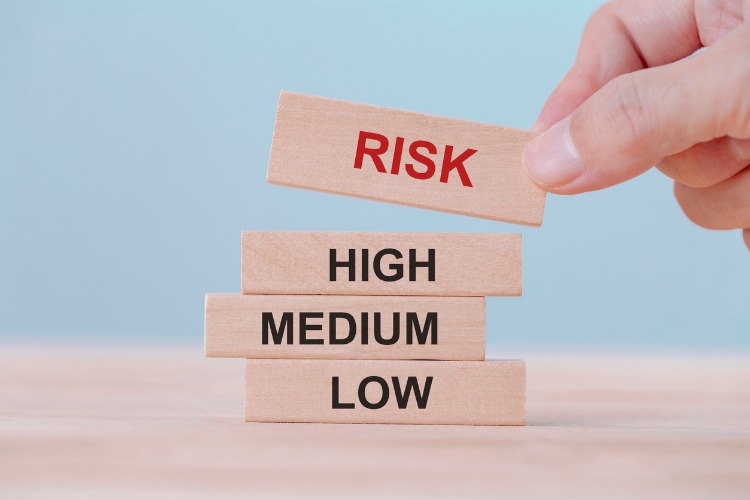Project Management Lessons Learned From Risk Management
Project Management Lessons Learned From Risk Management
While risk management can be draining, it offers crucial lessons that enable managers to implement projects efficiently.
If you undertake a thorough risk analysis before any project, you’ll identify all the gaps and create mitigation strategies. This way, you’ll save time and resources.
What is Risk Management in Project Management?
Risk management refers to a process where you identify, assess, and mitigate risks that have the potential to affect your project adversely.
These risks include legal liabilities, natural disasters, financial uncertainties, data-related risks, and accidents.
The risk analysis process should include all the departments of your organization to ensure a holistic risk mitigation approach.
Why is Risk Management Necessary in Project Management?
When you start any project, you desire that you’ll achieve your goals and objectives. However, projects have many risks that can threaten your success.
If you fail to identify and mitigate these risks, then you can be sure that you’ll fail in your assignment. As such, you should carry out an extensive risk management exercise to determine your strengths, weaknesses, opportunities, and threats before you start your project.
Here are some of the benefits of risk management in project management:
Enhanced Decision Making
When you analyze your risks, you’ll tailor-make all your decisions to mitigate them. As such, you’ll have an enhanced chance to succeed.
Identification of New Opportunities
When assessing project management risks, you’re likely to identify opportunities that will boost your revenue.
Prevent Risks Occurrence
Risk management involves instituting measures that safeguard your project. You’ll develop techniques that will prevent the occurrence of the risks, which will significantly boost your chances of success.
How to Undertake Risk Management for Project Management
Before the commencement of your project, you should undertake the following crucial exercises:
Plan
Many managers have failed due to the failure to appreciate that any project has risks. They believe that accepting that there are weaknesses is negative thinking, which is not right.
Much to their disappointment, they realize that the weaknesses they ignored at the beginning of the project have taken a toll on the project leading to failure.
To avoid such frustrations, you should make risk analysis your first exercise whenever you’re undertaking a project. Always ensure that you list all the risks associated with the project.
Risk Prioritization
After listing your risks, you should classify them based on the severity of the effects they would have on the project (you can rate them as High Risk or Low Risks).
This will help you to prioritize your risk management strategies. You should first develop mitigation strategies for the high risks that would have a massive impact on the project.
Involve Your Team/ Communicate
How well you engage your team members will determine the success of your project. Always ensure that they understand all the risks associated with the project.
Additionally, you must make them understand the mitigation strategies you’ve developed. This way, you’ll reduce the chances of the risks occurring due to negligence of your team members.
Using Lessons Learned in Project Management
Risk management enables you to raise awareness about possible risks in any given project. As such, you should use your experiences to boost your knowledge in prospecting for issues in your future projects.
Here is how you can use risk management lessons to enhance your project management success:
Prepare a Detailed List of Reference
When you handle a project, you’ll certainly face some difficulties. Solving these challenges leave you with immense experience and knowledge to handle future projects.
You should always list all the risks you encountered and the mitigation strategies you used to resolve them. This way, you can be sure that you’ll be able to identify problems and develop a mitigation strategy before the project starts.
Define the Role of Every Stakeholder
If you’re new to any project, you’re likely to experience confusion occasioned by unclear roles of stakeholders. This may lead to a delay in the implementation process, which will consequently result in undesirable results.
To avoid this, you should use your prior risk management experiences to have a formidable team with clear-cut roles and obligations. Always ensure that you inform each stakeholder on the exact time when their services will be required to avoid delays.
Share Your Schedule with Team Members
Sharing your schedule early enough ensures that the members prepare to execute their roles without delay. Additionally, it ensures that all the resources required are available within the stipulated timelines.
The consistency and the predictability that come with having a schedule will make your project management task a breeze. You’ll be able to have a budget and assign roles early enough to preventing project stalling.
The Bottom Line
Risk management is an essential task in any project. It determines how well you implement a project and increases your chances of success.
As such, you should always pick some lessons with every project you implement. These experiences will help you to plan and execute your projects flawlessly in the future.
This article has detailed various lessons that you can learn with each project and how you can use them to boost your efficacy when implementing future projects.

